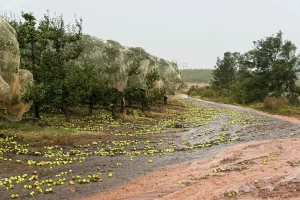According to recent statements by its president, Mariano Zapata, the main hurdles include restrictions on phytosanitary products, the impact of international agreements such as Mercosur, a shortage of qualified labor, and uncertainty surrounding water supply, particularly from 2027 onwards.
Increasing pests and phytosanitary restrictions
One of the most pressing issues is the ongoing restriction of available phytosanitary products due to national and European regulations. These limitations, coupled with the rise in pests driven by climate change, are complicating the production of key crops such as lettuce, broccoli, and peppers.
“We’re reaching a point where producing a lettuce will become economically unfeasible unless measures are taken,” explains Proexport’s president.
Mercosur
The trade agreement between the European Union and Mercosur also raises concerns. Products from South American countries, where phytosanitary regulations are less stringent, could flood the European market at lower prices, harming local farmers.
“In Spain, we are required to meet strict standards, while imported products are not held to the same regulations, creating unfair competition,” noted Zapata.
Labor shortages
Labor shortages are a widespread issue across the sector, particularly in regions where agriculture significantly contributes to the GDP, such as Murcia.
Each year, it becomes increasingly difficult to find qualified workers for both fieldwork and the packaging processes at fruit and vegetable centers.
“Our only viable solution is to achieve maximum technological advancement by incorporating state-of-the-art machinery and automated systems to improve productivity. But even so, labor remains absolutely essential,” emphasized Zapata.
Water crisis: An imminent threat
Access to water is another critical concern. Restrictions set for 2027 include the closure of wells and a 35% reduction in the Tajo-Segura water transfer supply. This is compounded by the lack of new infrastructure, such as desalination plants, to ensure access to quality water.
“Without concrete solutions, the future of agriculture in regions like Murcia, Andalusia, and the Valencian Community is at risk,” warned the president.
An uncertain but not insurmountable future
Proexport plans to tackle these challenges by forming alliances with associations from other affected regions, including Andalusia, the Valencian Community, and Extremadura, aiming to pressure the government and the European Union.
RELATED NEWS: Proexport is calling all international retailers at Berlin
Despite the adversities, the sector has proven its resilience and excellence, as evidenced by the success of the last three pepper campaigns, which have been favorable for both farmers and marketers.
In summary, Proexport’s president asserts that “the Murcian horticultural sector is at a crossroads and must be prepared to face the challenges of an increasingly regulated and competitive environment. This will require unity, innovation, and governmental support to maintain a leading position in Europe in the production and export of fruits and vegetables.”
















